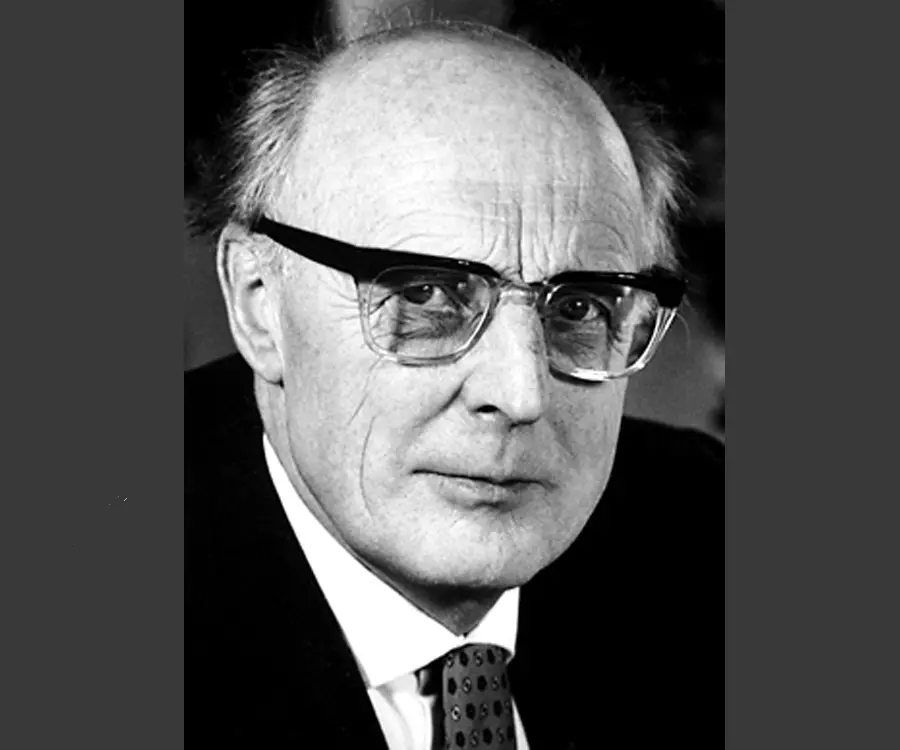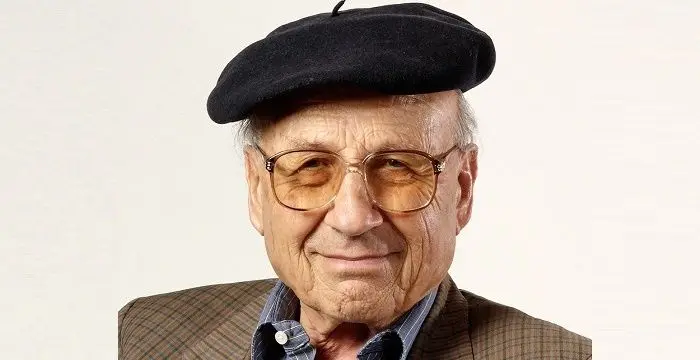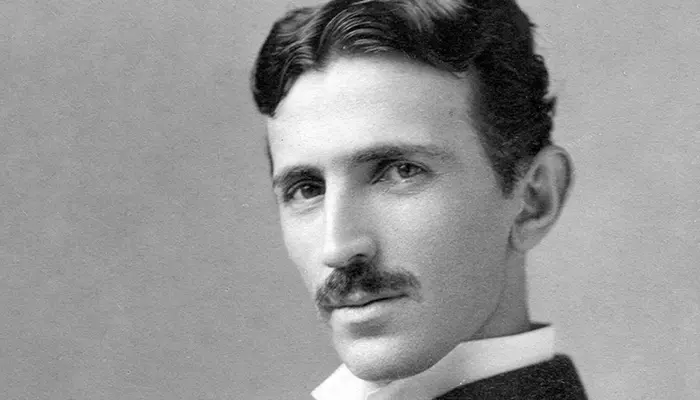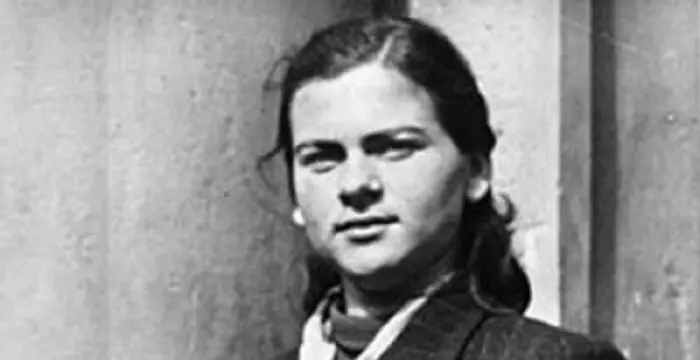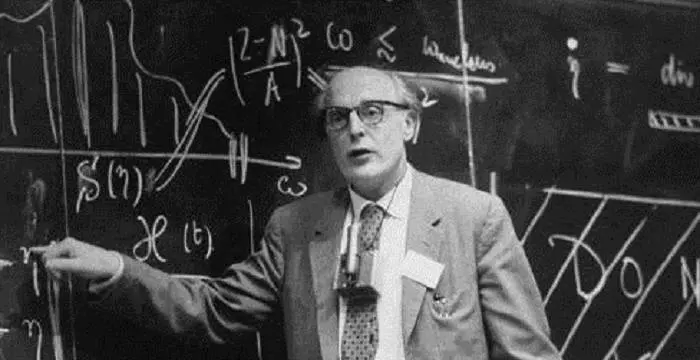
J. Hans D. Jensen - Physicists, Birthday and Family
J. Hans D. Jensen's Personal Details
Johannes Hans Daniel Jensen was a German nuclear physicist and a joint winner of the Nobel Prize for Physics
| Information | Detail |
|---|---|
| Birthday | June 25, 1907 |
| Died on | February 11, 1973 |
| Nationality | German |
| Famous | Scientists, Physicists |
| Known as | J. Hans Jensen |
| Universities |
|
| Birth Place | Hamburg, Germany |
| Gender | Male |
| Father | Karl Jensen |
| Mother | Helene Ohm Jensen |
| Sun Sign | Cancer |
| Born in | Hamburg, Germany |
| Famous as | Physicist |
| Died at Age | 65 |
// Famous Scientists
Juliane Koepcke
Juliane Koepcke is a German-Peruvian biologist, who was the lone survivor among the 92 passengers and crew of the ill-fated LANSA Flight 508 that crashed in the Peruvian rainforest on 24 December 1971. Know more about her life in this biography.
Henry Cavendish
Henry Cavendish was a theoretical chemist and physicist, renowned for discovery of hydrogen and calculation of the mass of earth. To know more about his childhood, profile, timeline and career read on
Konstantin Tsiolkovsky
Konstantin Tsiolkovsky was a Russian rocket scientist and a pioneer of astronautics. This biography provides detailed information about his childhood, family, personal life, career, achievements, etc.
J. Hans D. Jensen's photo
Who is J. Hans D. Jensen?
Johannes Hans Daniel Jensen was a German nuclear physicist and a joint winner of the Nobel Prize for Physics. He was a member of the Uranium Club where he worked on the German nuclear energy project dring the World War II. His work on the separation of uranium isotopes is well-acknowledged. Jensen was a professor at the University of Heidelberg and a visiting professor at the University of Wisconsin–Madison, the Institute for Advanced Study, Indiana University, and the California Institute of Technology. During the rise of Hitler, Jensen joined the National Socialist German University Lecturers League or NSDDB even though membership was not mandatory. He also played an active part as a member of the National Socialist Teachers League for two years. Jensen was a member of National Socialist German Workers Party (NSDP). He was also a member of the Heidelberg Academy of Sciences, a corresponding member of the Max Planck Gesellschaft, and a member of the Sacri Romani Imperii Academia Naturae Coriosorum (Leopoldina, Halle).
// Famous Physicists
Henry Cavendish
Henry Cavendish was a theoretical chemist and physicist, renowned for discovery of hydrogen and calculation of the mass of earth. To know more about his childhood, profile, timeline and career read on
Walter Kohn
Nobel Laureate Walter Kohn was an Austrian-born American theoretical chemist and physicist. Check out this biography to know about his childhood, life, achievements, works & timeline.
Nikola Tesla
Nikola Tesla was a Serbian-American inventor, best known for his development of alternating current electrical systems. This biography of Nikola Tesla provides detailed information about his childhood, life, achievements, works & timeline.
Childhood & Early Life
J. Hans D. Jensen was born on 25 June 1907 in Hamburg, Germany. He was the son of a gardener, Karl Jensen and Helene Ohm Jensen.
From 1926 to 1931, he studied physics, mathematics, physical chemistry, and philosophy at the Albert-Ludwigs-Universität Freiburg and the University of Hamburg.
In 1932, he obtained his doctorate degree under Wilhelm Lenz from the University of Hamburg. In 1936, Jensen completed his Habilitation from the same university.
Career
In 1937 Jensen was appointed a Privatdozent (unpaid lecturer) at the University of Hamburg. The same year, he began working with Paul Harteck, director of the university's physical chemistry department and advisor to the HWA, Army Ordnance Office on explosives.
In 1939, after the launch of military control over the German nuclear energy project—Uranverein (Uranium Club), Jensen joined the project at the initiative of Harteck who was one of the major figures in the Uranverein. Jensen worked on double centrifuges for separation of uranium isotopes.
In 1941 Jensen was named extraordinarius professor of theoretical physics at the the University of Hanover. In 1946 he became an ordinarius professor at the same university.
In 1949 he joined as an ordinarius professor at the Ruprecht Karl University of Heidelberg. He later received emeritus praecox status there. The same year, Jensen and Maria Goeppert-Mayer independently presented the shell model for the nucleus of an atom.
In 1950, J. Hans D. Jensen co-authored the ‘Über Gaszentrifugen: Anreicherung der Xenon-, Krypton- und der Selen-Isotope nach dem Zentrifugenverfahren’ with Konrad Beyerle, Wilhelm Groth, Paul Harteck.
In 1951, he worked as a visiting professor at the University of Wisconsin.
In 1952, Jensen worked as a guest professor at the California Institute of Technology and the Institute of Advanced Study, Princeton.
In 1953 he was a visiting professor at the Institute for Advanced Study of the University of Indiana and the California Institute of Technology.
In 1955, Jensen collaborated with Maria Goeppert-Mayer in writing ‘Elementary Theory of Nuclear Shell Structure’.
In 1956, he was a visiting professor at the University of Minnesota.
In 1961, Jensen was appointed as a guest lecturer at the University of California at La Jolla.
Major Works
Jensen’s most celebrated work is his theory of the shell nuclear model. He and Maria Goeppert-Mayer proposed this separately in 1949. The shell nuclear model states that an atomic nucleus is a structure of shells with different radii just like layers of onion and each is filled with neutrons and protons.
Awards & Achievements
While working on the Nuclear roject, Harteck and Jensen came up with a double centrifuge based on a rocking process (Schaukelverfahren) to make possible the separation effect.
In 1947 he received an honorary professorship at the University of Hamburg.
In 1963 J. Hans. D. Jensen received a Nobel Prize in Physics for his proposal of the shell nuclear model. He shared half of the Prize with Maria Goeppert Mayer and the other half of the prize was awarded to Eugene P. Wigner for some other realm of research.
In 1964 he received an honorary doctorate from the Technische Universität Hannover, now the University of Hanover.
In 1969 Jensen was offered an honorary citizenship of Fort Lauderdale, Florida.
Personal Life & Legacy
J. Hans D. Jensen died on February 11, 1973 in Heidelberg, Germany.
Trivia
During the denazification process in the post-World war Germany, Werner Heisenberg wrote the Whitewash Certificate or Persilschein explaining that Jensen joined the Uranium Club to avoid facing problems in academia. This cleared all charges against Jensen.
// Famous German peoples
Jordan Carver
Jordan Carver is a famous German model. Let’s take a close look at her personal life, including her age, career, net worth, achievements and some fun facts.
Jürgen Klopp
Jürgen Klopp is a German football manager, and a former professional football player. Check out this biography to know more about his childhood, family, personal life, etc.
Irma Grese
Irma Grese was a notorious German Nazi concentration camp guard during the Second World War. This biography profiles her childhood, life, horrifying acts, death and other facts.
J. Hans D. Jensen's awards
| Year | Name | Award |
|---|---|---|
Other | ||
| 0 | Nobel Prize for Physics (1963) | |
J. Hans D. Jensen biography timelines
- // 25th Jun 1907J. Hans D. Jensen was born on 25 June 1907 in Hamburg, Germany. He was the son of a gardener, Karl Jensen and Helene Ohm Jensen.
- // 1926 To 1931From 1926 to 1931, he studied physics, mathematics, physical chemistry, and philosophy at the Albert-Ludwigs-Universität Freiburg and the University of Hamburg.
- // 1932 To 1936In 1932, he obtained his doctorate degree under Wilhelm Lenz from the University of Hamburg. In 1936, Jensen completed his Habilitation from the same university.
- // 1937In 1937 Jensen was appointed a Privatdozent (unpaid lecturer) at the University of Hamburg. The same year, he began working with Paul Harteck, director of the university's physical chemistry department and advisor to the HWA, Army Ordnance Office on explosives.
- // 1939In 1939, after the launch of military control over the German nuclear energy project—Uranverein (Uranium Club), Jensen joined the project at the initiative of Harteck who was one of the major figures in the Uranverein. Jensen worked on double centrifuges for separation of uranium isotopes.
- // 1941 To 1946In 1941 Jensen was named extraordinarius professor of theoretical physics at the the University of Hanover. In 1946 he became an ordinarius professor at the same university.
- // 1947In 1947 he received an honorary professorship at the University of Hamburg.
- // 1949In 1949 he joined as an ordinarius professor at the Ruprecht Karl University of Heidelberg. He later received emeritus praecox status there. The same year, Jensen and Maria Goeppert-Mayer independently presented the shell model for the nucleus of an atom.
- // 1949Jensen’s most celebrated work is his theory of the shell nuclear model. He and Maria Goeppert-Mayer proposed this separately in 1949. The shell nuclear model states that an atomic nucleus is a structure of shells with different radii just like layers of onion and each is filled with neutrons and protons.
- // 1950In 1950, J. Hans D. Jensen co-authored the ‘Über Gaszentrifugen: Anreicherung der Xenon-, Krypton- und der Selen-Isotope nach dem Zentrifugenverfahren’ with Konrad Beyerle, Wilhelm Groth, Paul Harteck.
- // 1951In 1951, he worked as a visiting professor at the University of Wisconsin.
- // 1952In 1952, Jensen worked as a guest professor at the California Institute of Technology and the Institute of Advanced Study, Princeton.
- // 1953In 1953 he was a visiting professor at the Institute for Advanced Study of the University of Indiana and the California Institute of Technology.
- // 1955In 1955, Jensen collaborated with Maria Goeppert-Mayer in writing ‘Elementary Theory of Nuclear Shell Structure’.
- // 1956In 1956, he was a visiting professor at the University of Minnesota.
- // 1961In 1961, Jensen was appointed as a guest lecturer at the University of California at La Jolla.
- // 1963In 1963 J. Hans. D. Jensen received a Nobel Prize in Physics for his proposal of the shell nuclear model. He shared half of the Prize with Maria Goeppert Mayer and the other half of the prize was awarded to Eugene P. Wigner for some other realm of research.
- // 1964In 1964 he received an honorary doctorate from the Technische Universität Hannover, now the University of Hanover.
- // 1969In 1969 Jensen was offered an honorary citizenship of Fort Lauderdale, Florida.
- // 11th Feb 1973J. Hans D. Jensen died on February 11, 1973 in Heidelberg, Germany.
// Famous Cancer Celebrities peoples
Jacob Elordi
Jacob Elordi is an Australian actor. Let’s take a look at his childhood, family, personal life, career, etc.
Riele Downs
Riele Downs is a Canadian-American actress & Musical.ly star. Let’s take a look at her family and personal life including age, birthday, net worth, boyfriends and fun facts.
Yammy Xox
Check out all that you wanted to know about Yammy Xox, the famous British YouTube Personality; her birthday, her family and personal life, her boyfriends, fun trivia facts and more.
Kaylee Quinn
Kaylee Quinn is an American dancer, model, and actress. Let’s have a look at her family and personal life including age, date of birth, net worth, relationships, and fun facts.
Sophia Montero
Sophia Montero is an American singer and YouTuber. Let’s have a look at her family and personal life including age, date of birth, net worth, relationships, and fun facts.
Domo Wilson
Check out all that you wanted to know about Domo Wilson, the famous American Vlogger & YouTube Personality; her birthday, her family and personal life, fun trivia facts and more.
J. Hans D. Jensen's FAQ
What is J. Hans D. Jensen birthday?
J. Hans D. Jensen was born at 1907-06-25
When was J. Hans D. Jensen died?
J. Hans D. Jensen was died at 1973-02-11
Where was J. Hans D. Jensen died?
J. Hans D. Jensen was died in Heidelberg
Which age was J. Hans D. Jensen died?
J. Hans D. Jensen was died at age 65
Where is J. Hans D. Jensen's birth place?
J. Hans D. Jensen was born in Hamburg, Germany
What is J. Hans D. Jensen nationalities?
J. Hans D. Jensen's nationalities is German
What was J. Hans D. Jensen universities?
J. Hans D. Jensen studied at University of Hamburg
Who is J. Hans D. Jensen's father?
J. Hans D. Jensen's father is Karl Jensen
Who is J. Hans D. Jensen's mother?
J. Hans D. Jensen's mother is Helene Ohm Jensen
What is J. Hans D. Jensen's sun sign?
J. Hans D. Jensen is Cancer
How famous is J. Hans D. Jensen?
J. Hans D. Jensen is famouse as Physicist



